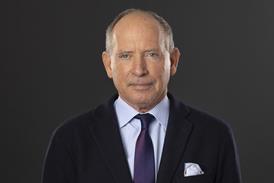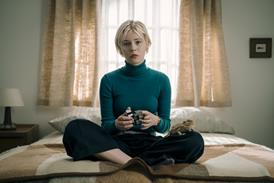“It is a parable for the age that should perhaps be put in a time capsule for historians to ponder 200 years from now.”

“It is overall fast, funny and absolutely furious. Some viewers will love it unreservedly, some will love it all apart from the bits where it takes aim at beliefs they hold dear, some will hate it unreservedly for reasons they can articulate clearly, and some will hate it for daring to exist. The mere presence of jokes about various shibboleths will be counted as support for bigots, fascists and right-wingers by some, and as a welcome return to sanity by others. That’s the point.”
Lucy Mangan, The Guardian
“Douglas Is Cancelled raises interesting questions: Who really has the power in a dynamic like Madeline and Douglas? Are we as responsible for the people we don’t help as the ones we hurt directly? And what is the ‘right’ price for the casual injuries we inflict on each other, sometimes without even realising? Unfortunately, the answers the series gives are unsatisfactory – its compelling premise is somewhat obscured by needlessly complicated plotting.”
Emily Watkins, The i
“Yes, it is repetitive at times, but the pacey dialogue fizzes. It is a parable for the age that should perhaps be put in a time capsule for historians to ponder 200 years from now.”
Carol Midgley, The Times
“Writer Stephen Moffat, best known for Sherlock and Doctor Who, deftly maintains a balance between comedy and social satire in Douglas Is Cancelled, with a rapid-fire script that springs a series of surprises on us as well as its hapless hero. Hugh Bonneville is a limited actor but his amiably aggrieved persona is ideal for this part, a blend of Downton’s Lord Grantham and Paddington’s Mr Brown.”
Christopher Stevens, Daily Mail
“Perhaps there is a good drama to be made about cancel culture. But the reality is that cancellation is one side of a transaction, whereas the other is transgression. Douglas is Cancelled tries to have its dramatic cake and eat it: a relatively frivolous accusation, an extremely serious transgression. This is a subject matter that deserves ambiguity, grey areas and hard questions, but Steven Moffat offers only sermons, moral binaries and easy answers. In the end, it’s no different to an ate cake: filling but not nourishing.”
Nick Hilton, The Independent
“‘Are you f—ing my husband? You act like you’re f—ing him,’ Sheila yells. ‘You don’t,’ Madeline coolly replies. This showdown takes place in the ladies’ bathroom. Perhaps Moffat thinks this is the kind of conversation that women have in there? Every single male character reveals themselves to be somewhere on the scale between dumb sexist and dangerous predator, so it’s quite some feat that the two female characters come out of this looking worse.”
Anita Singh, The Telegraph
“It remains a decidedly odd concept, to take a little known historical event, mess it up and add magic animals. But it works by throwing its whole heart into the endeavour. It pays attention to daft details and never takes itself too seriously. In short, it’s escapist fun, bordering on nonsense – and perfect summer viewing.”
Lucy Mangan, The Guardian
“It’s resplendent to look at – the costumes as much as Herstmonceux Castle. Who’s it all for though? Despite name checks for Julian of Norwich and Thomas Wyatt, and a fun nod to The Godfather’s horse head scene, the script sourced from a Young Adult novel has the mental age of a CBeebies drama. It would be best enjoyed by kids but for the locust cloud of F-bombs and a rabid focus on what one serving wench coyly terms ‘marital purposes’. Sexy, sweary and infantile, this is one for your (inner) teen.”
Jasper Rees, The Telegraph

































No comments yet